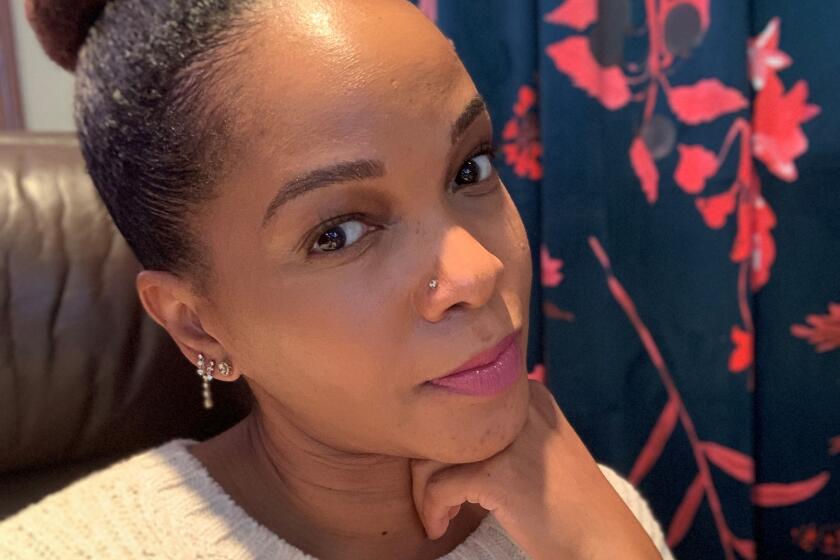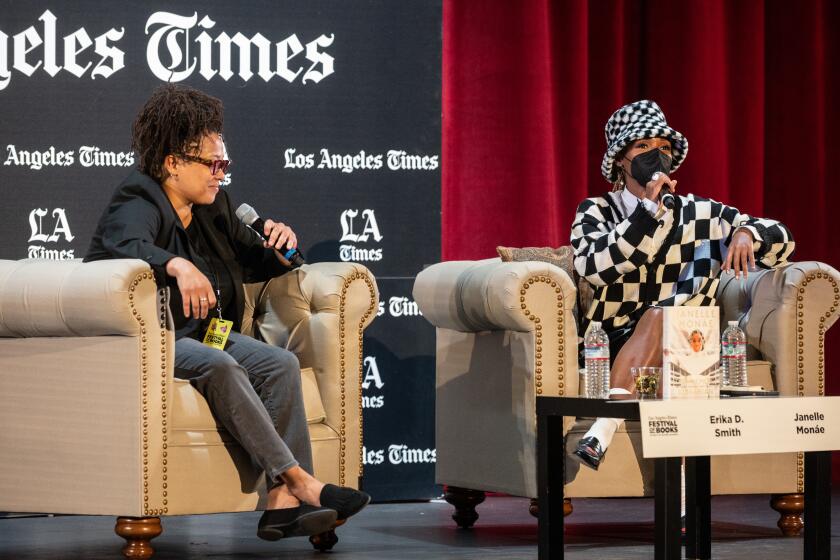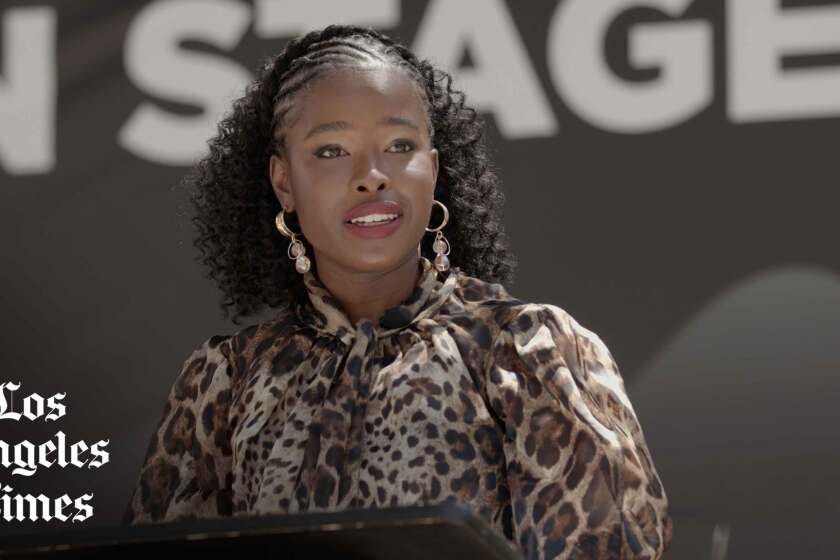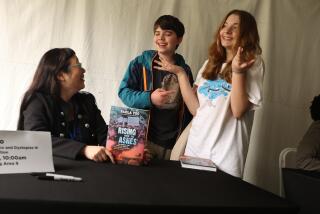Four Black authors on the fight ‘for our history’ at a Festival of Books panel
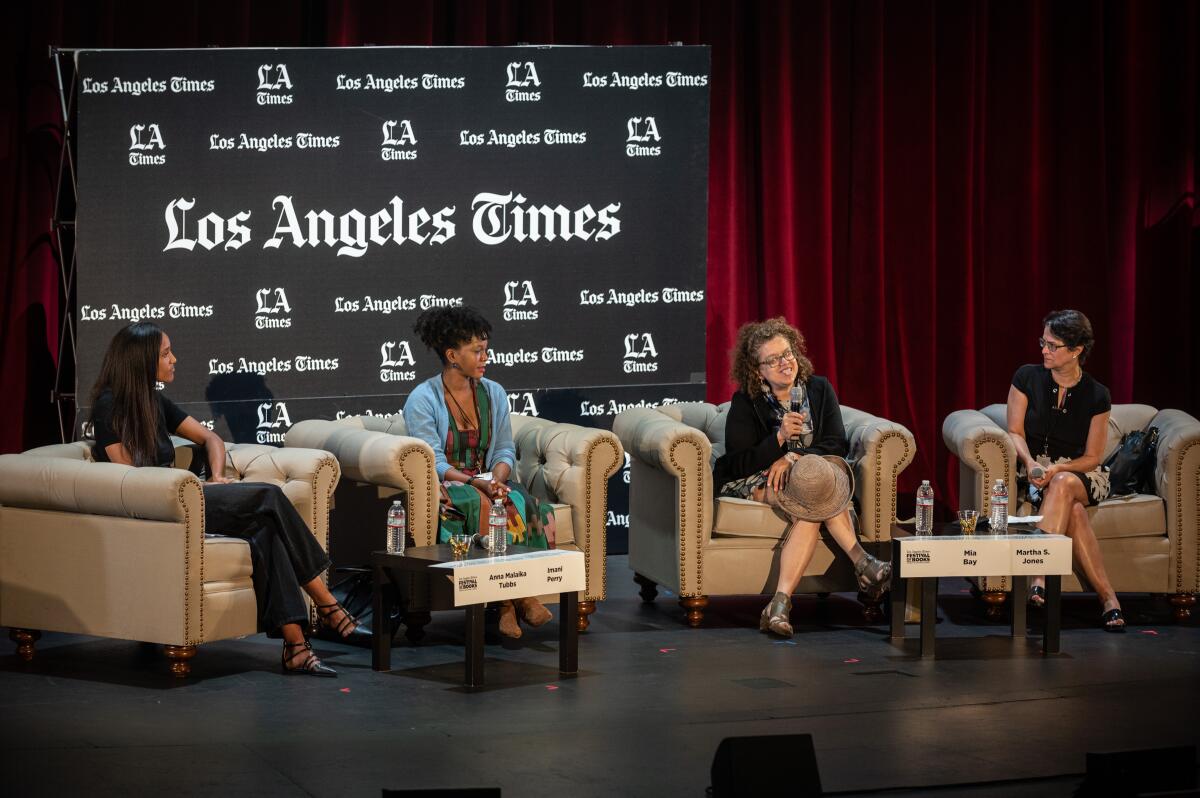
- Share via
Is race the determining factor in the story of America? That hotly debated question has come even more to the forefront in recent years, as the police murder of George Floyd sparked uprisings and reckonings across the country, followed by backlash and panic over “critical race theory.” And it was the focus of “History: Race in America,” a popular panel on Saturday at the Los Angeles Times Festival of Books.
Historian Martha S. Jones hosted the discussion in Bovard Auditorium on the USC campus, among fellow authors Mia Bay, Anna Malaika Tubbs and Imani Perry. It was the first in-person Festival since 2019, before the pandemic and before Floyd’s death and all that followed.
All the panelists had been writing their books during those events; each found her work profoundly (if sometimes indirectly) changed.
The writer and Princeton scholar on “South to America,” her personal and historical tour of the region, and why so many liberals are wrong about it.
Tubbs, whose history “The Three Mothers” explores the lives and impact of the mothers of Martin Luther King Jr., Malcolm X and James Baldwin, talked about how Floyd’s final words, crying out for his mother, were foundational to the book. Telling these stories, Tubbs said, is a fight “for our minds” and “for our history.”
Bay’s new book, “Traveling Black,” a finalist for this year’s Times Book Prize in history, was a project long gestating. Bay was putting the finishing touches on her study of racist travel restrictions in Jim Crow America when Floyd was killed. She spoke on Saturday about the relationship between car infrastructure and policing, especially for “a nation formed by travel.” She argued that the triumphs of the civil rights movement when it came to travel were to some extent “Pyrrhic victories.”
Panels, prizes and people — lots of them. Coverage of the L.A. Times’ first in-person Festival of Books since 2019 begins below.
Perry, a professor at Princeton, attributed some of 2020’s seismic protests and discussions of systemic racism to the effects of the pandemic. “People were still and that allowed for a reflection,” she said. Her recent book, “South to America: A Journey Below the Mason-Dixon to Understand the Soul of a Nation,” looks at how central the South is to our national consciousness, no matter that some would prefer to bracket it off from the rest of the nation.
Though the conversation, by necessity, navigated some very ugly moments in American history, the panelists also talked about making space for moments of joy. They celebrated the fact that at Friday’s Times Book Prizes, all five finalists in the history category were women of color, including panelist Bay. They were grateful to be a part of a long legacy — and also for those moments when progress, however tentative, feels palpable.
Gorman read her poem “Fugue,” about the ravages of the pandemic, publicly for the first time at the Los Angeles Times Festival of Books on Saturday.
More to Read
Sign up for our Book Club newsletter
Get the latest news, events and more from the Los Angeles Times Book Club, and help us get L.A. reading and talking.
You may occasionally receive promotional content from the Los Angeles Times.
